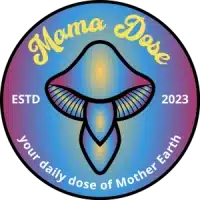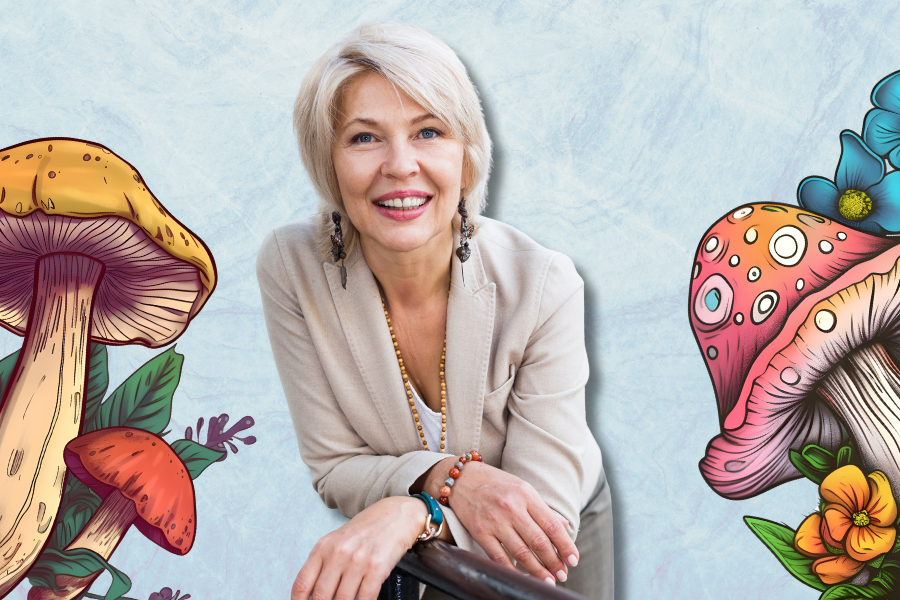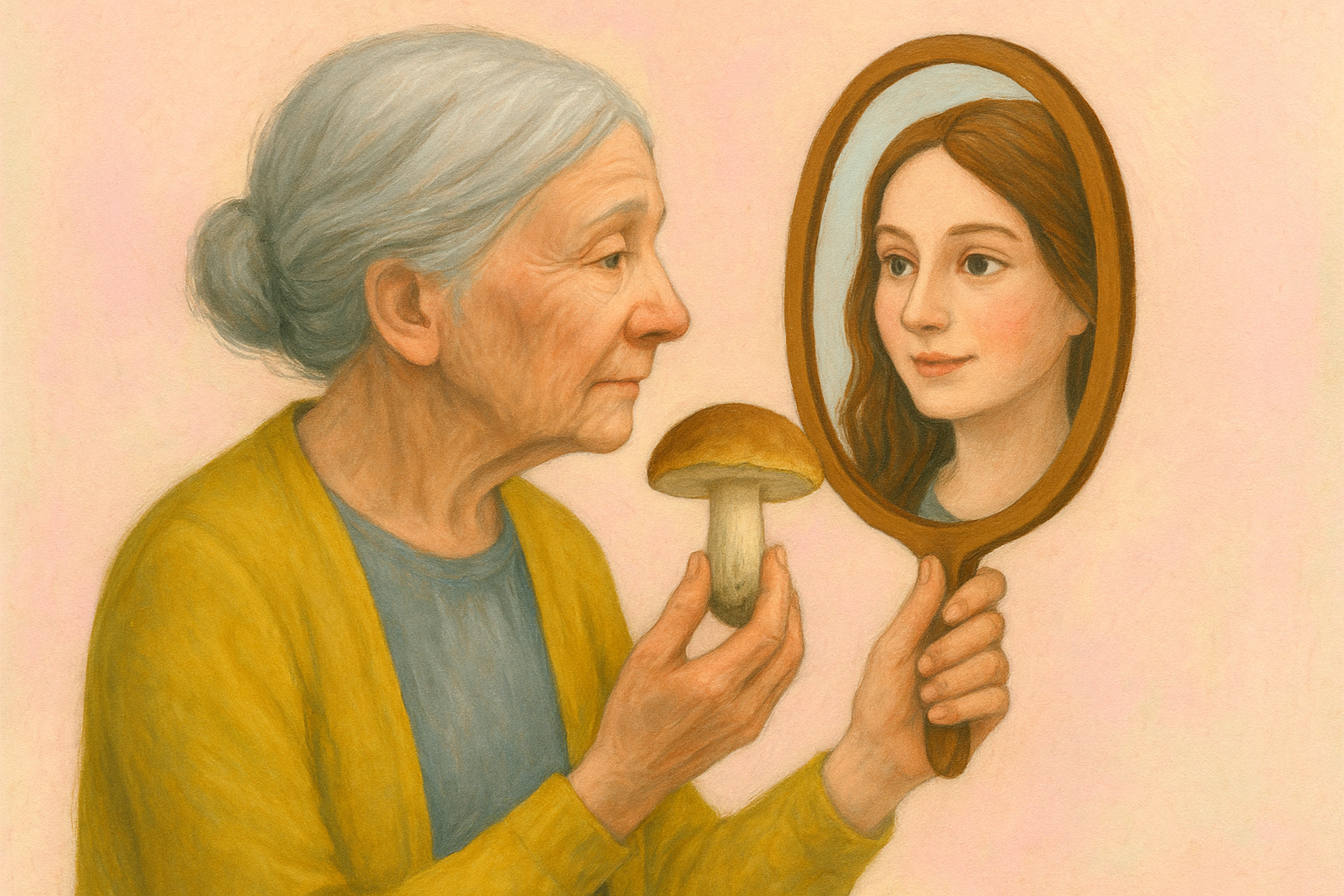

Table of Contents
Toggle
Can Magic Mushrooms Slow Aging? Well, a new study just might shed some light on this. The world of psychedelics is buzzing with new possibilities, and a groundbreaking study has just added a fresh layer to the conversation. Researchers from Emory University and Baylor College of Medicine have uncovered evidence that psilocybin, the active compound in magic mushrooms, might do more than spark profound mental health breakthroughs. Their findings suggest psilocybin could extend cellular lifespan and improve survival in aged mice, hinting at its potential as an anti-aging agent. For those of us who explore the intersections of wellness, science, and psychedelics, this discovery opens a fascinating door.
Psilocybin has long been known for its ability to ease depression, anxiety, and addiction in clinical trials. Its mind-altering effects, often described as deeply transformative, have fueled a psychedelic renaissance, with over 150 studies exploring its therapeutic potential. But until now, most research has focused on the brain, leaving the body’s broader systems largely uncharted. This new study shifts the spotlight, suggesting psilocybin’s benefits might extend far beyond mental health, touching the very processes that govern how we age.
The researchers tested psilocin, the active metabolite of psilocybin, on human fetal lung and adult skin fibroblasts, cells that play a role in tissue repair and maintenance. These cells were treated with psilocin and monitored until they reached senescence, the point where they stop dividing and enter a dormant state. The results were striking: at a 100-micromole concentration, lung cells lasted 57% longer, and skin cells saw a 51% increase in lifespan compared to untreated cells. This delay in senescence, a hallmark of aging, suggests psilocybin might help cells stay functional for longer.
To explore this further, the team turned to aged mice, roughly equivalent to humans in their 60s. Over 10 months, female mice received a low dose of psilocybin (5 mg/kg) initially, followed by monthly high doses (15 mg/kg). By the end, 80% of the psilocybin-treated mice were still alive, compared to just 50% of the control group. Beyond survival, these mice showed visible signs of vitality, shinier fur, fewer white hairs, and even hair regrowth. These findings, while preliminary, paint a compelling picture of psilocybin as a potential tool for healthier aging.
The study points to several mechanisms that could explain psilocybin’s anti-aging effects. One standout is its impact on telomeres, the protective caps at the ends of chromosomes that shorten with age, leaving DNA vulnerable to damage. In the study, psilocin-treated cells preserved telomere length, while untreated cells showed significant shortening. This preservation could help shield cells from age-related decline, potentially reducing the risk of diseases like cancer or neurodegeneration.
Psilocybin also appears to combat oxidative stress, a major driver of aging. The researchers found that psilocin reduced reactive oxygen species (ROS), harmful molecules that damage cells over time. This was linked to lower levels of NADPH oxidase-4 (Nox4), a protein that fuels oxidant production, and higher levels of nuclear factor erythroid 2-related factor 2 (Nrf2), which boosts antioxidant defenses.
Another intriguing finding involves sirtuin1 (SIRT1), a protein tied to aging, metabolism, and stress responses. Psilocin-treated cells showed elevated SIRT1 levels, suggesting a pathway through which psilocybin might delay senescence. The study also noted reduced levels of GADD45a, a marker of DNA damage, indicating that psilocybin could enhance DNA stability. These cellular changes, combined with psilocybin’s interaction with serotonin receptors (like 5-HT2A, found in cells throughout the body), hint at a systemic effect that goes beyond the brain.

Aging is more than just wrinkles and gray hair; it’s about how our bodies and minds function as we move through life. With U.S. life expectancy lagging behind other high-income countries at 78.4 years, and only a 4.7-year increase since 1980 compared to 7.9 years elsewhere, the search for interventions that promote not just longer life but healthier life is urgent. This study suggests psilocybin could be part of that equation, offering a way to enhance vitality in later years.
This study offers compelling preclinical evidence that psilocybin may support healthier aging—not just by increasing lifespan, but by enhancing quality of life in later years. The findings go beyond longevity: the mice not only lived longer, but also displayed physical signs of vitality. If these results translate to humans, it could mean feeling more energetic, capable, and vibrant well into our 60s and beyond.
While these findings are exciting, they come with caveats. The study is preclinical, meaning it’s a starting point, not a definitive answer. Human trials are needed to confirm whether psilocybin can deliver similar anti-aging benefits in people. Questions remain about optimal dosing, treatment frequency, and the ideal age to begin therapy. Could starting earlier amplify the effects, or is there an age where benefits diminish? The researchers also call for studies on sex-specific effects, as this study focused on female mice to minimize variables.
Another consideration is psilocybin’s legal status. As a Schedule I substance, it faces strict regulatory barriers, limiting research funding and access. Despite its designation as a “breakthrough therapy” by the FDA, with minimal reported adverse effects, these restrictions slow progress. Future research must also explore potential risks, such as whether delaying cellular senescence could inadvertently influence cancer progression, though the study found no evidence of oncogenic transformation.
The idea that magic mushrooms could slow aging is more than a psychedelic daydream; it’s a possibility grounded in emerging science. Psilocybin’s ability to extend cellular lifespan, preserve telomeres, and boost survival in mice suggests a new frontier for healthy aging. As researchers continue to explore its systemic effects, we’re left with a tantalizing question: could magic mushrooms slow aging in humans, helping us live not just longer but better? For now, this study is a bold step toward answering that question, inviting us to reimagine the role of psychedelics in our quest for vitality.
Invite your friends and earn a discount on your next purchase. Your friend also earns a discount! Get started now, by sharing your referral link with your friends.
This item is currently out of stock!
By adding it to your cart, you confirm a backorder purchase, and we will ship it as soon as it becomes available.